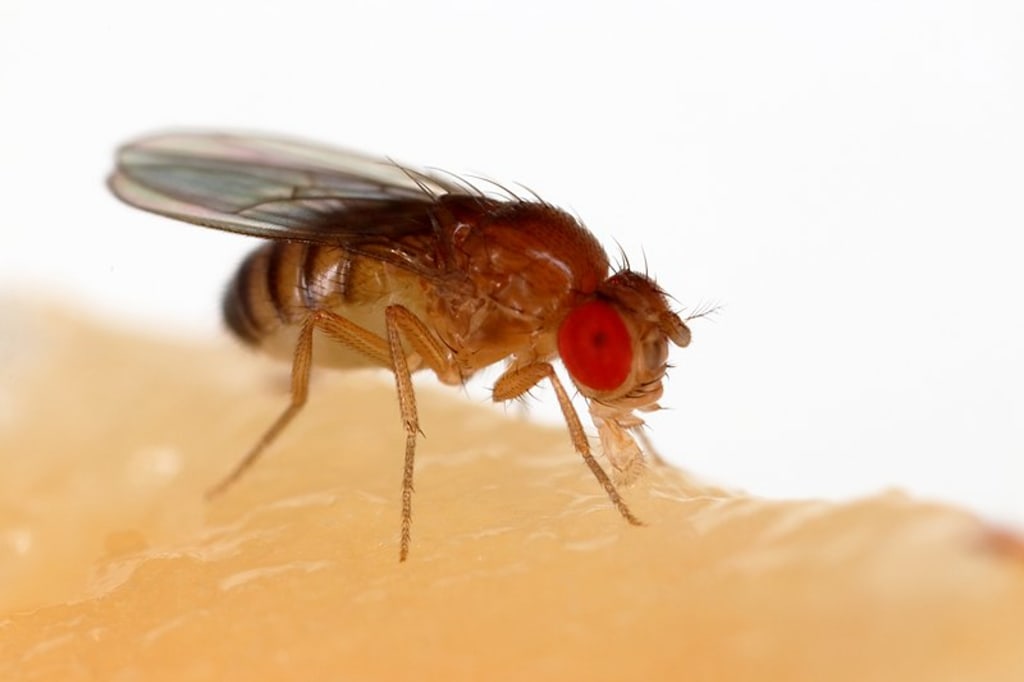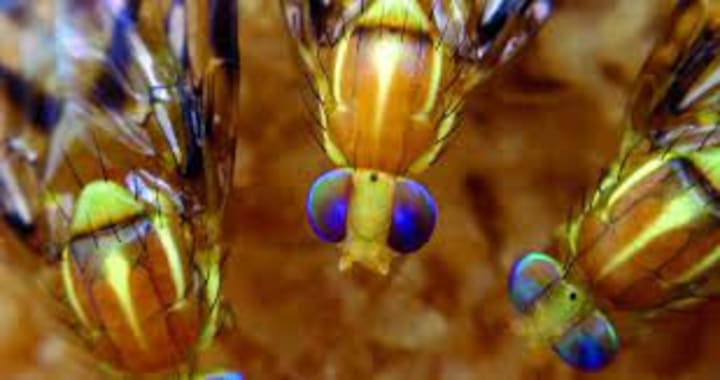Unraveling the Mystery of Virgin Births: Fruit Flies Offer Clues to the Phenomenon
Scientists Tweak Genes in Fruit Flies, Achieving Virgin Births and Shedding Light on the Complex Mechanisms of Facultative Parthenogenesis

Scientists from the University of Cambridge have achieved a groundbreaking feat, making fruit flies undergo virgin births through genetic manipulation. This development comes in the wake of a fascinating discovery earlier this year, when a virgin birth was recorded in a crocodile, garnering global attention. The phenomenon of virgin births, or facultative parthenogenesis, has been observed in various species, including chickens, turkeys, Komodo dragons, and mayflies. Now, scientists have managed to induce a similar process in fruit flies, offering valuable insights into this rare occurrence in the natural world.
The six-year study focused on fruit flies that, under natural circumstances, cannot experience virgin births. However, by altering copies of just three genes, researchers successfully caused the fruit flies to reproduce without male involvement. This significant breakthrough sheds light on the mechanisms that drive virgin births in the wild and potentially brings scientists closer to understanding how such an event could transpire in humans.
Virgin births, also known as parthenogenesis, occur when a female produces offspring without any contribution from a male. While this phenomenon is rare in nature, it has been documented in several species, such as mayflies, turkeys, pythons, and boa constrictors. The crocodile case, for instance, involved a mechanism called "terminal fusion automixis," wherein the female fertilizes her own eggs using a genetic by-product known as the second polar body. This results in offspring with DNA solely from the mother.

The fruit fly study yielded remarkable results, as it produced two generations of flies born without a father, an achievement not previously attained in similar attempts with mice. Although the research uncovered important genes shared with humans, Dr. Alexis Sperling, lead author of the study, asserted that exploring virgin births in humans should not be pursued, given the complexity of such a process and the absence of sufficient knowledge and regulations.

While virgin births in humans or other mammals that do not naturally undergo this phenomenon in the wild present significant challenges, the study's findings provide valuable insights into the biology of facultative parthenogenesis. The examined fruit flies were engineered to experience virgin births independently, unlike some mouse studies that required a second female mouse for successful reproduction.
The researchers focused on 44 genes that might contribute to natural virgin births in Hawaiian and Brazilian fruit flies. Through genetic manipulation, they identified three crucial genes responsible for the process. By breeding fruit flies with modified genes, including fewer copies of Desat2, two extra copies of the Polo gene, and an additional copy of the Myc gene, the scientists successfully induced virgin births in the fruit flies.

Understanding the complex processes of virgin births can have practical implications. In the wild, female animals may resort to this phenomenon when isolated without a mate, increasing their chances of survival. Interestingly, evidence suggests that insect pests plaguing gardeners' and farmers' tomato plants may also be evolving to undergo virgin births as a response to pesticides interfering with their mating.
The newfound knowledge of facultative parthenogenesis in fruit flies may pave the way for future applications. For instance, it could offer insights into blocking the process in pests, helping protect greenhouses from infestations. As scientists continue to explore this fascinating area of biology, the study of virgin births in fruit flies provides a valuable foundation for unlocking the secrets of reproduction and adaptation in the natural world.
About the Creator
Random Things
Just posting about current random things.






Comments
There are no comments for this story
Be the first to respond and start the conversation.